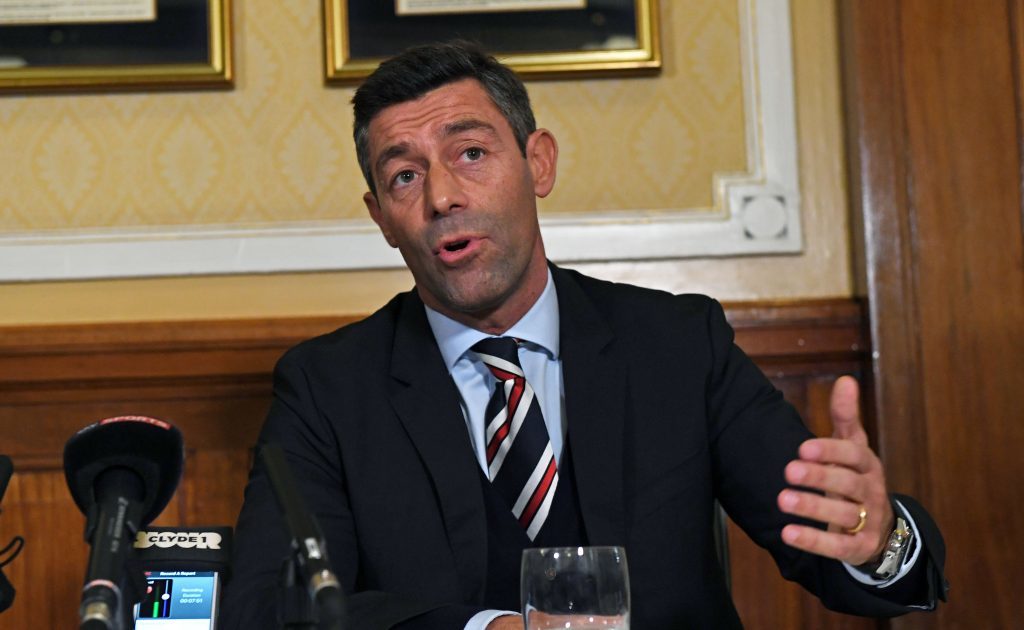Once when working as the pitch-side TV reporter at a game abroad, a member of the team backroom staff asked me for a copy of the opponent’s formation, which he’d seen their manager write down for me.
He returned minutes later somewhat agitated, with the same request, explaining that the manager’s assistant had somehow managed to lose the paper with the vital information somewhere in the dressing room.
This was less than an hour before kick off.
The incident cured me of my mistaken belief that people running football teams always know what they’re doing.
Sometimes in football there’s actually less to things than meets the eye, which leads me to this question. Tactics or talent: which of these two wins football matches?
The Rangers manager Pedro Caixinha sparked a debate when he used three empty tumblers at his post match press conference to explain his on-field tactics in last weekend’s Scottish Cup defeat to Celtic.
Some admired his approach saying it was an area which often gets short shrift from managers and journalists alike in the Scottish game; others were dismissive of the approach.
Regularly while working on radio or television I find myself asking managers to outline their team formation and shape, and to explain for fans why they have adopted a particular set up.
Frequently the response is woolly or more to the point, that my colleagues and I can work it out for ourselves once the game starts. I often feel like they’re guarding the secrets to the universe, which if unlocked will unleash plague and disease on an unsuspecting world.
When the match starts it’s often difficult to discern if there actually is any particular shape to the team which corresponds to whatever information has been guessed at or gleaned.
Some in football coaching, and in journalism, and in the stands, have elevated the sport to a profession with quasi scientific status. It’s not.
Football is a trade and the desire to accord it an artificial and higher worth is misguided.
Of course tactics are important and preparation is vital, but very often luck rather than skill separates teams of roughly similar ability. Teams of greater ability will usually beat teams of poorer quality no matter how much video analysis and technical information has been pored over.
The game now offers a stunning array of information which can overwhelm the senses: from how far a player has run during a match, to the number of shots on goal with left foot or right foot, which area those shots came from and from where the pass was supplied.
The essential components of the game remain undisturbed however.
The ability to take a pass and control and manoeuvre the ball to a team-mate at speed and in tight spaces is still absolutely crucial.
Alongside that goes the need for a high fitness level. Players can easily get pulled out of position in the heat of battle when tactical nous and shape evaporate as the lungs gasp for air and the brain begs for rest.
Talk tactics till you’re blue in the face, but talent wins football matches.



